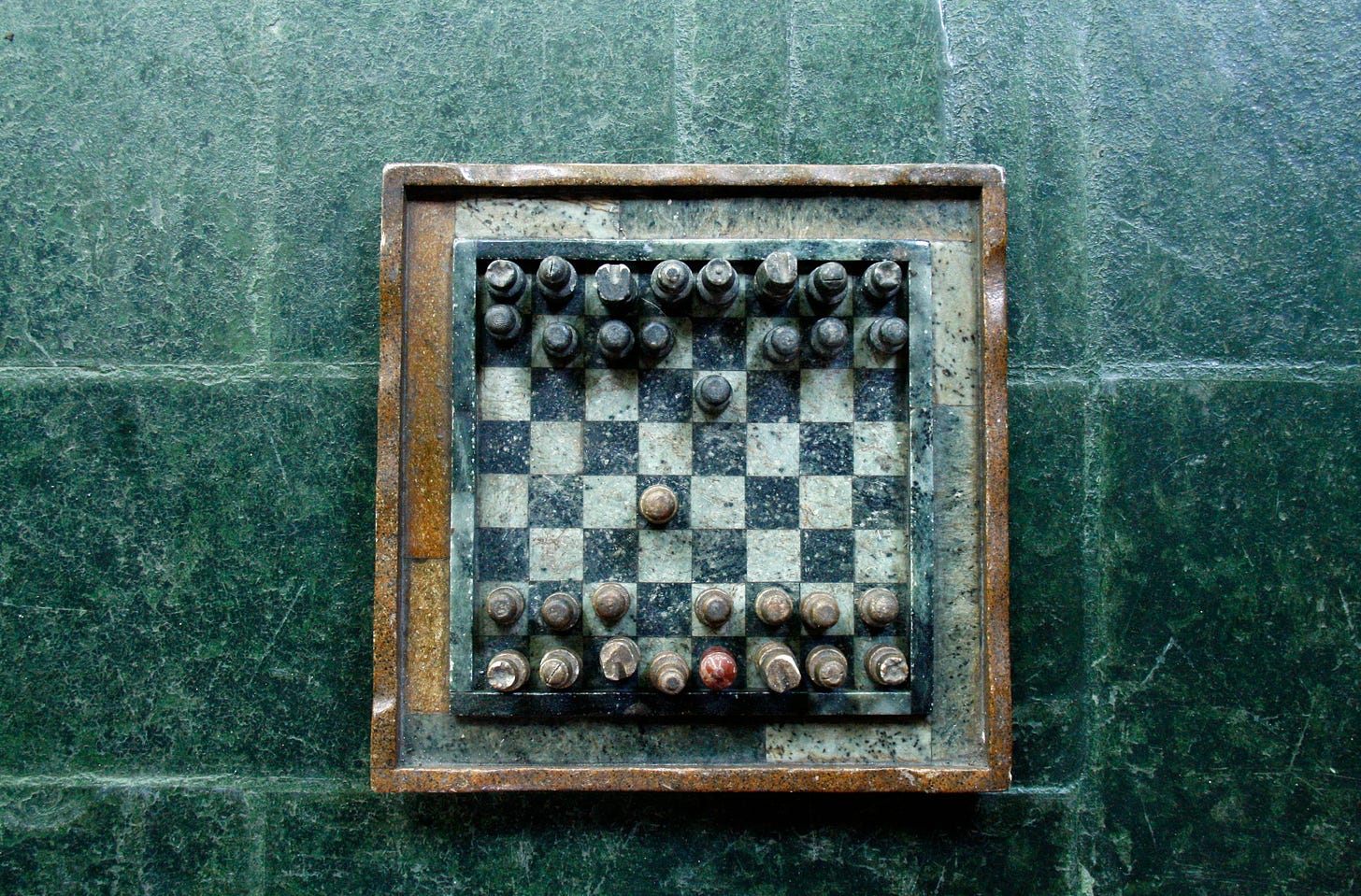What metaphor comes to mind when imagining yourself dealing with disturbing emotions that upset your balance? Thoughts that cause you and others around you suffering, or push you to speak and act in destructive ways? A miasmic swamp? A haunted house? A life threatening jungle? One of the circles of Hell?
Tibetans have a surprising metaphor which is more empowering: a chess game.
Over the last two decades I have had the good fortune to receive teachings and empowerments from a handful of lamas in the Tibetan Buddhist tradition. In 2017 I attended some teachings from the Karmapa, a close associate of the Dalai Lama and the leader of the Karma Kagyu sect. The teachings that day focused on dealing with anger, an appropos choice for these days—or decades— of rage we’re living through.
The teaching that stayed with me most from that day were the Karmapa’s words about Tibetan chess. “The Tibetan masters of old had a unique approach for dealing with their disturbing emotions”, he said. “They approached dealing with them like they would a game of chess. For them it was not grim, not tense. It was entertainment.”
The Karmapa pointed out that when an “afflictive emotion” would arise —like anger, greed, anxiety, or melancholy— they would see it not as a threat, but as an opportunity. “They would see it as a game,” said the Karmapa. “How can I overcome this emotion? Am I strong enough? In this way, they would remain relaxed, cheerful, and playful.”
This is a far cry from how I approach my own harmful emotions. When anger or self-pity arise, I tend to see them as threats. I try to relax, out-manouver and out-think them, yes. Yet if I see this as any kind of game, it’s not a relaxing game of chess, but more like a wrestling match or juijitsu.
The deficiencies of this approach are not hard to see. Any game is better played relaxed, cheerfully and, well— playfully. Approaching a confrontation in a grim, tense, rigid state of mind prophecies losing the match, or at least being exhausted by it.
It seems more skillful to approach emotions playfully and creatively. All of us are in the same boat, sailing with the same cargoes of delusion and reactivity, so why not accept that and try to approach the whole thing in a decent mood, with some attitude?
Mind Training
Just as in a chess match, there are a multitude of different strategies we can use when approaching our opponent. Just as a chess player might choose between the Boden-Kieseritzky Gambit and the Calabrian Countergambit, for example—I got those from Google— the mind trainer also has a bag of tricks.
Keep reading with a 7-day free trial
Subscribe to Mind Yoga to keep reading this post and get 7 days of free access to the full post archives.




